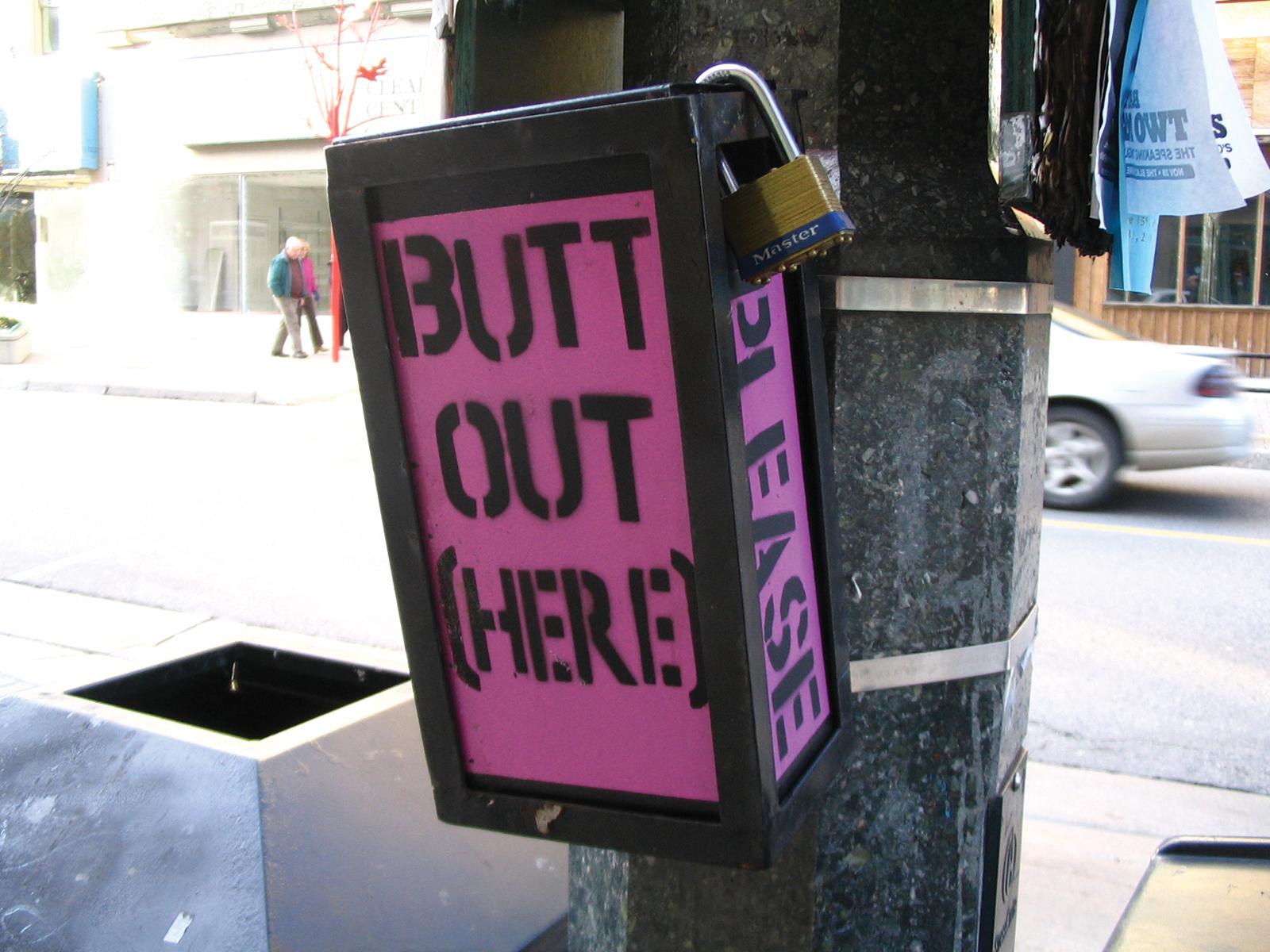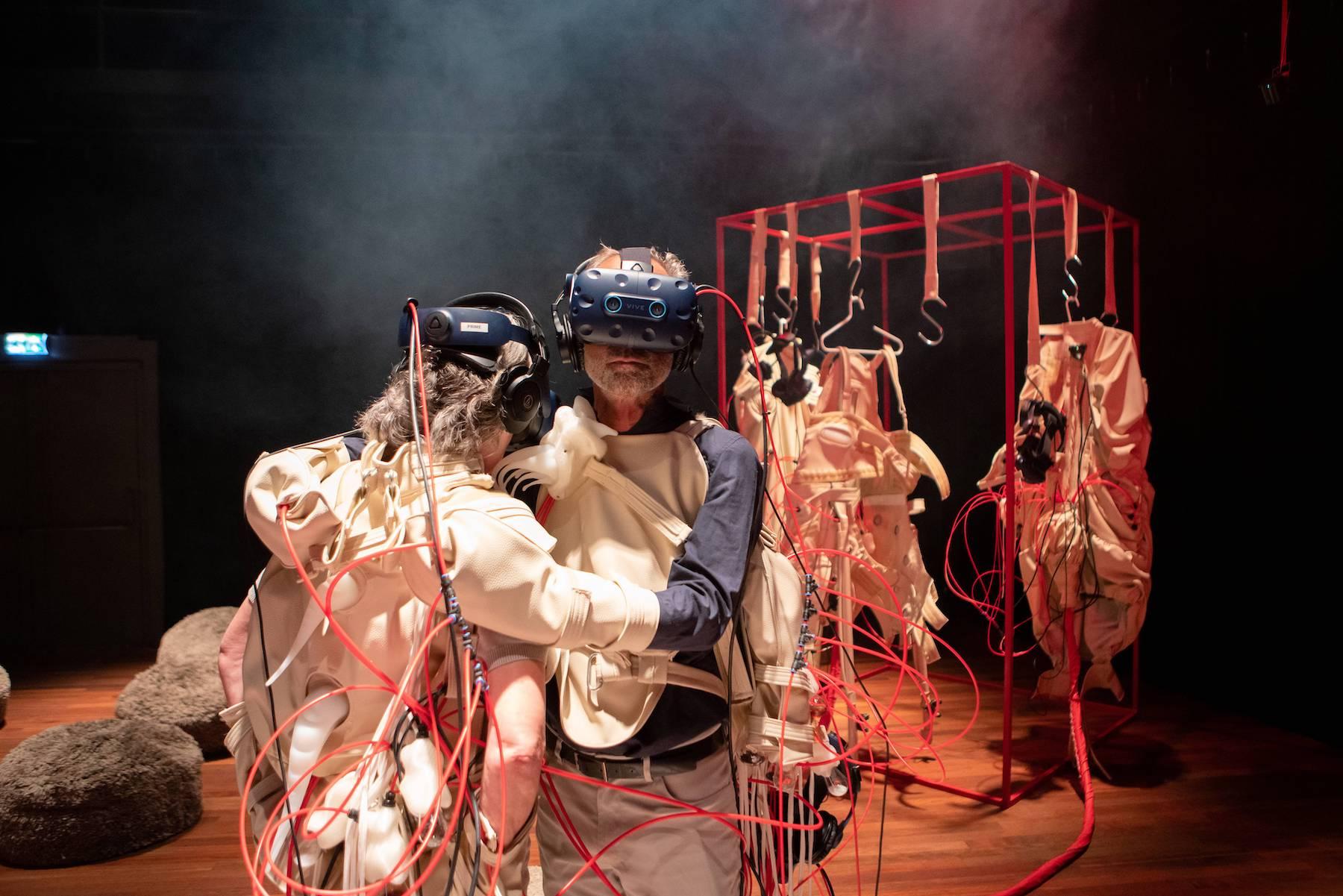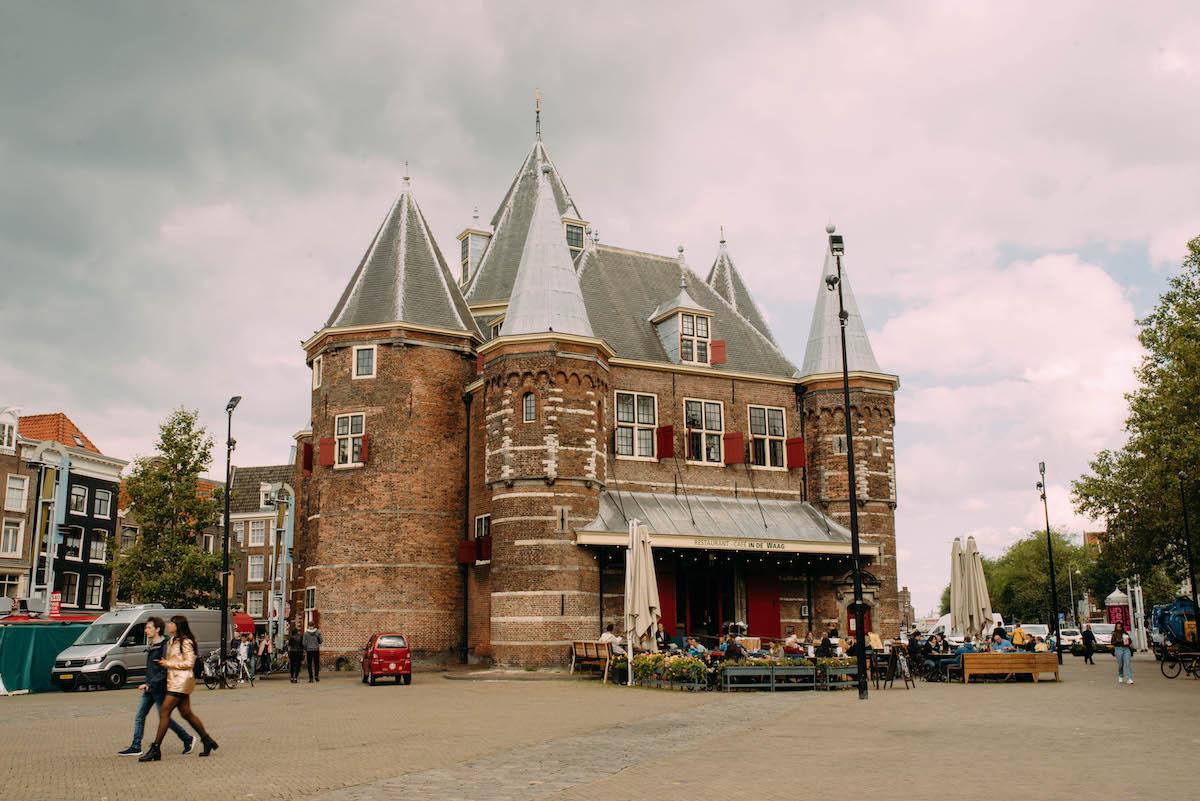How do we give deprecated waste a useful function in our daily lives? In this trash hacking workshop we will try to recycle an impossible type of waste: cigarettes butts.
Worldwide, 1,700,000,000 kilos of butts are thrown out on the streets each year. To make a cigarette, you need three products: tobacco, paper and (optionally) a filter. The tobacco and the paper are biodegradable, and basically do not pose a direct danger to the environment during disposal. The filter, on the other hand, is not degradable. It needs between twelve and fifteen years to completely disappear.
The filter of a cigarette is made of cellulose acetate, a plastic that has a base of wood pulp. This material is used for many of our daily products such as spectacle frames, playing cards, clothing, park benches and even toys. Can we maybe use the filters to make new spectable frames, for example?
During this evening we will go deeper into the pollution and upcycling of cigarette butts and a number of striking examples will be discussed. We challenge ourselves to look at waste and our own behavior differently. Can we revitalise cigarette ends?
The entrance fee is € 5, -, including a drink. This event is Dutch spoken.
Programme
Peukenzee
Four young entrepreneurs together form the company Peukenzee. With their creative solutions, they give festivals, such as Into the Woods, the opportunity to reduce the ghost sea on their festival grounds. The Peukenzee services create awareness, experience and involvement among festival goers. By bringing together the festivals, municipalities, smokers and non-smokers, we are all pushing back the gooey sea.
Tim de Rooij
Tim visited the plastic soup twice in the Atlantic and Pacific Oceans. All the thoughtful waste lay there floating in the water. But especially not cigarette butts. That while 4.5 trillion butts per year end up in nature. Where do these filters go? Why are they so polluting? And can we find a usable alternative?
Tim de Rooij works under the name Captain Flotsam and works against the plastic pollution by giving guest lessons at elementary and middle schools. Now he specializes in a kind of plastic pollution, namely cigarette butts. He gives advice, conducts research and runs a campaign under the name Save Your Butt.


